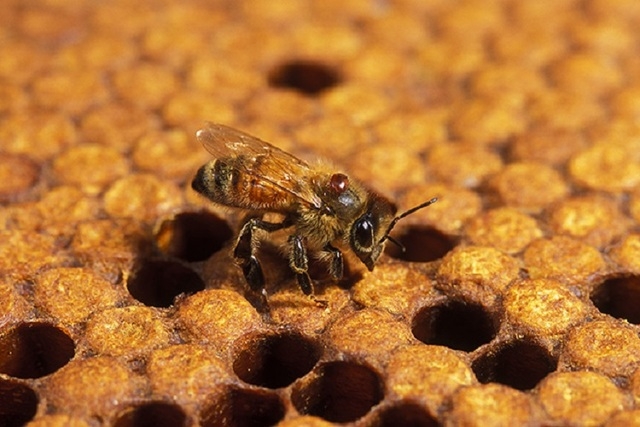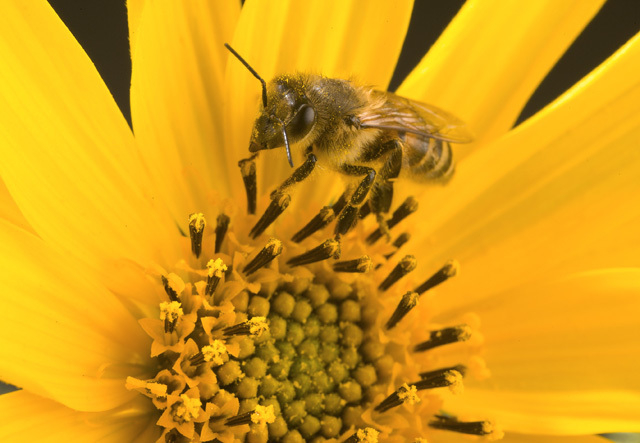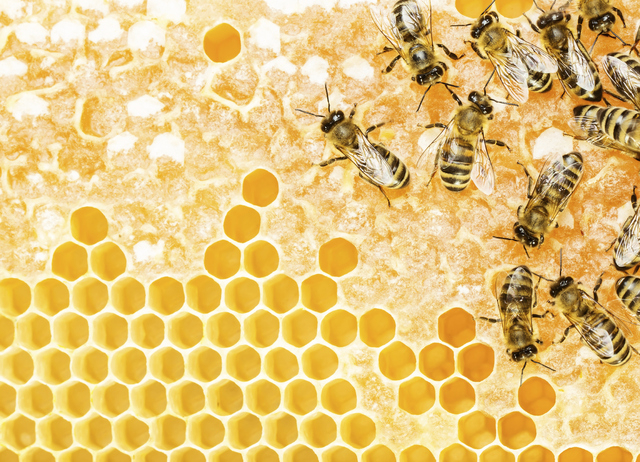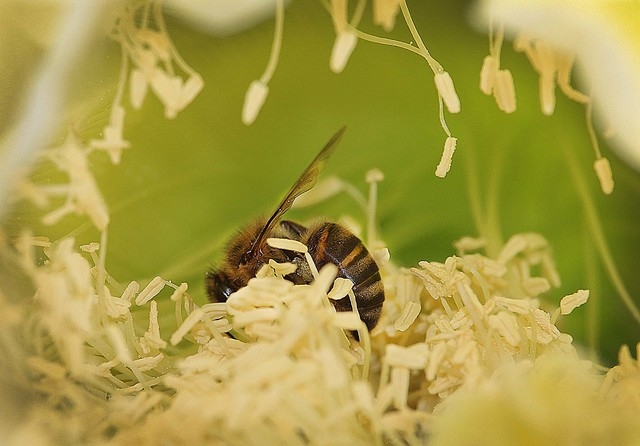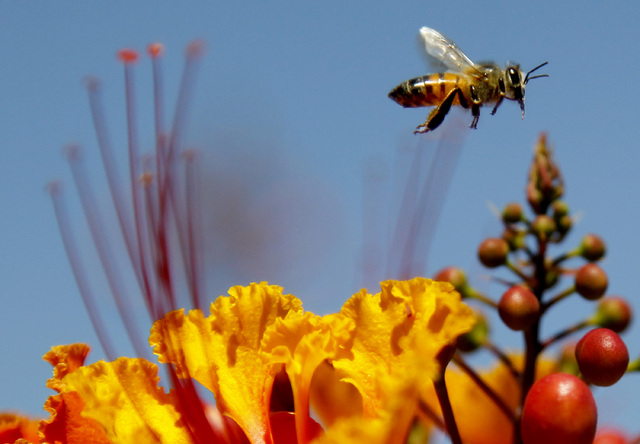Honeybees alive and well in Nevada
SPARKS — The buzz on honeybees in Nevada is mostly good.
Despite concerns around the country of massive die-offs of honeybee colonies, such a scenario has not manifested itself in Nevada in any significant way, said Jeff Knight, state entomologist with the Department of Agriculture.
“I think the honeybee populations are just fine,” he said. “There are threats across the board for all pollinators. But honeybees are not going extinct.”
Honeybee pollination is not a huge part of Nevada’s agriculture industry, Knight said. Alfalfa and other crops are pollinated by other insects, he said. Honeybees are important for vegetables and fruit trees, but the crops don’t make up a big percentage of Nevada’s agriculture acreage.
There has been a big increase in the number of hobbyists who establish colonies of honeybees, both in Southern and Northern Nevada urban areas, Knight said.
The agency does not keep track of colonies statewide, nor does the state regulate their operation, he said.
“There are more beekeepers with colonies in Reno and Las Vegas than we have ever had before,” Knight said.
One concern for the health of honeybees is Africanized honeybees, which are found in Clark County but have not moved farther north than the Beatty and Hiko areas, he said.
Africanized bees are a concern in Las Vegas because if hobbyists do not care for their colonies properly, they will be taken over by the more aggressive subspecies, Knight said.
A few weeks ago there was a report of an attack by Africanized honeybees in Las Vegas when two men were throwing rocks at a hive hanging from an olive tree. Nine people were treated at the scene for bee stings, with three transported to Sunrise Hospital and Medical Center.
Knight said any feral bee colony in Clark County is just assumed to be made up of Africanized bees, which are unpredictable.
The Department of Agriculture presented the honeybee information as part of a public awareness effort.
Threats to honeybee colonies can come in a variety of ways, from improper pesticide application to the Varroa mite. Drought conditions also can contribute to the stress of a bee colony.
Hive management by colony operators, particularly through the winter months, is also a factor, Knight said.
Even with die-offs of colonies, honeybees have the ability to recover quickly, he said.
“They have a fantastic ability to reproduce,” Knight said.
Contact Capital Bureau reporter Sean Whaley at swhaley@reviewjournal.com or 775-687-3900. Find him on Twitter: @seanw801.



